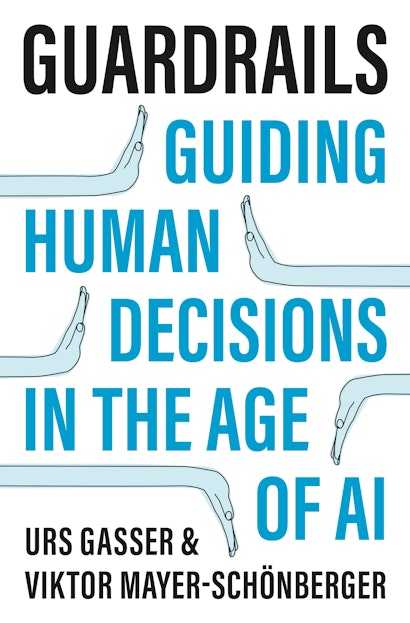For over a quarter century, many millions in the US have captured moments of their daily lives and shared them online, from the mildly amusing and banal to the shocking and painful. Most both produce and consume in what may be called an addictive cycle of baring and peeping. Pervasive social media platforms act as intermediaries and, far more importantly, as preservers of our digital lives, never erasing a second, making myriads of moments easily retrievable. We live in a world that no longer forgets. And, it seems, we have adjusted to it. Except that we haven’t.
Fifteen years ago, I wrote Delete, arguing that forgetting is crucial for humans, individually and as a society. Because as we forget, we rid ourselves of memories that no longer matter to the here and now. This lets us focus on the present rather than remain tethered to the past. It gives priority to the things we remember, makes them stand out as important. As we forget, we forgive. Most of our mistakes fade over time. Forgetting is the thread that weaves our social fabric. It enables us to accept each other as well as ourselves in all our failings.
Some argued then that there is an alternative to forgetting. Perhaps our minds can cognitively adjust to a world that no longer forgets and accept our omnipresent pasts. Perhaps we forgive without forgetting. Perhaps we can have comprehensive (and digitally enhanced) memory and humane forgiveness. It sounded so enticing—like having the cake and eat it too.
Reality disappointed. The comprehensive accessibility of our past moments has not made us more forgiving. Instead, the maelstrom of digital moments simply numbed us vis-à-vis the painful, the aggressive, the unkind, the evil. What before we rarely dared to say to one another, we now have no hesitation to comment on Facebook or type on Twitter (ah, sorry, X). In a world of comprehensive remembering the politeness of forgetting no longer seems to matter. Look at public debates online and what is said, not just by politicians (although that matters, too) but bystanders like most of us. Patently false accusations and vulgar memes are preserved and regurgitated over and over with ease: not signs of robust debate, but evidence of the dangerous malaise of moral numbness.
It’s not the first time. Such numbness inflicted Germans almost a century ago. Radio, the new media then, gave those that realized its power a lever to shape public debate. A similar numbness pervaded the Soviet Union, with hard-wired radios blaring propaganda trespassing into the privacy of homes. The limitations of radio required a constant barrage to instill emotional anesthesia. Today, that’s no longer necessary, as many millions willingly spend hours a day numbing themselves on social media.
In Delete I was skeptical of humankind’s capacity to adjust our cognitive processes. It seemed unlikely to me that we would will such change or even could. And I worried about our ability to focus on truly important memories if everything gets preserved. I feared that we would drown in a sea of remembered banalities, no longer able to recognize what really mattered. With seemingly never-ending Insta streams and social media reels, that fear has largely been borne out. But what I missed was the subsequent numbing that is anesthetizing our power to recognize disrespect, vulgarity and conceit. Over time it floods our conversations with a dangerous incivility that corrodes the very foundation of our society. Our waning capacity to forgive, stifled by our inability to forget, turns our society into a brutal place of rough tumble and ourselves simultaneously into inhumane actors and hapless victims.
Getting ourselves out of this mess will be challenging. As I suggested in Delete, in a world in which forgetting is the default, we are suckers for memories—easy prey for the digital platforms that offer comprehensive remembering. The European Union has formally enacted a “right to be forgotten”. But as I expected, this legal response to the challenge of comprehensive digital memory has done little to alter our habits. Others, as fifteen years ago, hold out hope for a technical solution. Yet, nothing like that is on the horizon. I am afraid, we’ll have to solve this problem ourselves, most likely by making small adjustments in our daily routines and practices as well as small changes in the defaults of our technical tools of remembering. As a society, we won’t be able to sue our way off comprehensive digital remembering. But much like regulations created incentives to invest in clean air, we can establish regulations that facilitate forgetting. This won’t be a simple band-aid that once applied absolves us from the responsibility to act, but it won’t require a full-fledged cognitive adjustment either.
Our response to an overbearing digital memory and the emotional numbness it causes will need to be pragmatic and practical, a combination of many small steps, each one small enough to accomplish yet large enough to be meaningful. We’ll enter uncharted territory, with dead ends and false starts, and the need for experimentation and learning. (If that sounds intriguing to you, you may want to check out Guardrails, published just a few months ago by Princeton University Press). This may sound tedious (at times, it will be) and tenuous (yes, that too), but I am afraid it likely is our last best hope to return to the world our mind is used to: a world that’s kind because we forgive as we forget, a world of forgetting so that we can remember what truly matters.
Viktor Mayer-Schönberger is professor of internet governance and regulation at the University of Oxford. His books include Delete: The Virtue of Forgetting in the Digital Age (Princeton).


